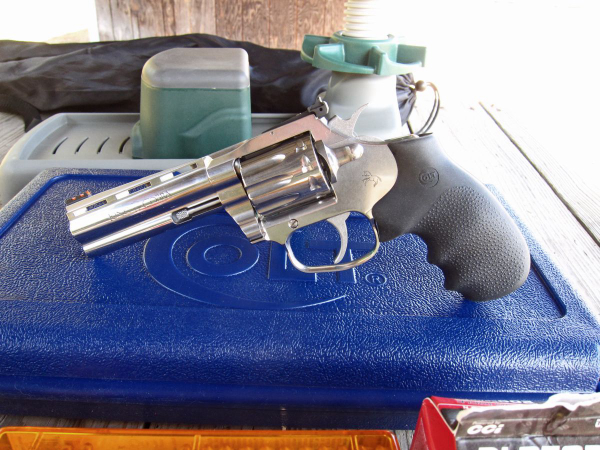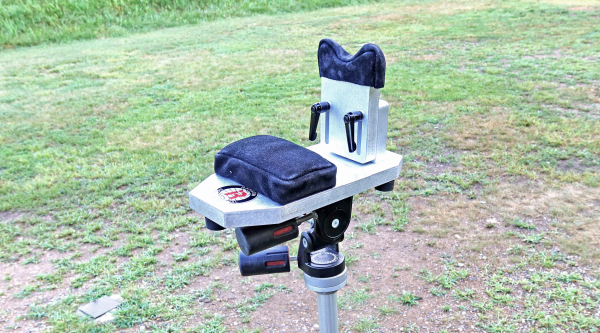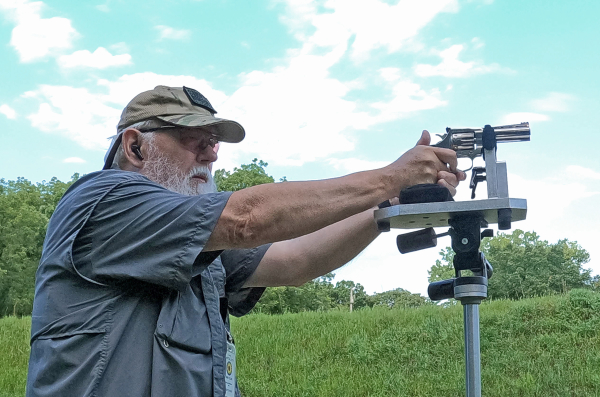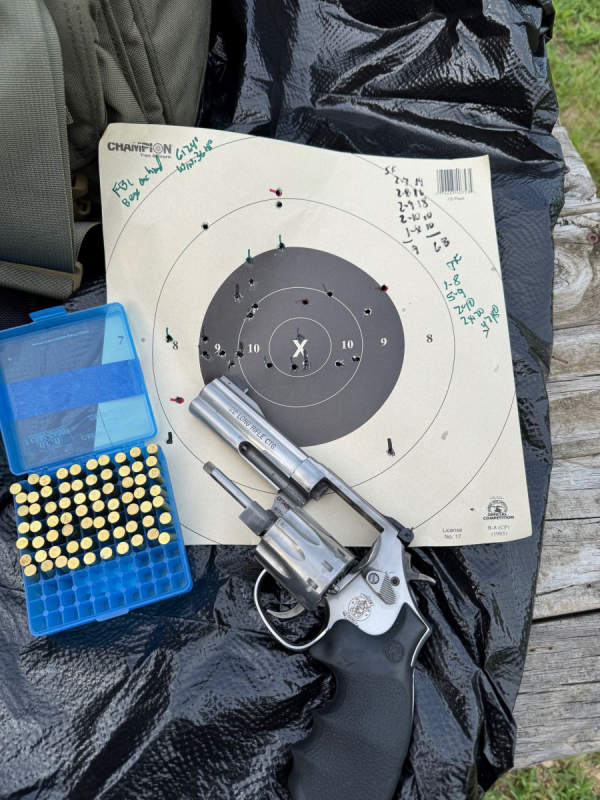As I became interested in bullseye again, I have been using the B-8 Master drill from YouTube personality JaredAF, as reported here. Why bullseye?

Ever hear of “unplugging?” It’s a recent concept, but it has roots in the old days of electronic entertainment. When I was young, the folks used television as a babysitter. Later parents, many who were kids of the TV generation, started cutting TV off from their offspring – but, as pointed out, portable electronic devices came along and the genie was back out of the bottle, as discussed here.
I find pursuing improvement in precision pistol gets me out of that rut; I can unplug and live in grip-sights-trigger.
Don’t start like I did -- ideally one checks zero on the piece before shooting the course. I didn’t, but it wouldn’t have made any difference in this case.
I was shooting the Colt King Cobra 22 Target with a 4 ¼ inch barrel. Using Federal Auto Match, I fell apart on rapid fire. My slow fire string, fired cold, was 81/100 – and that made me feel good. My timed fire score was a little better. Looking up … then, in rapid fire, I chased the clock instead of hits.
Didn’t even make Marksman (240 and up), largely because I didn’t focus during rapid fire. Lesson learned. Again.
The Colt’s trigger isn’t the best; it’s a little firm. The hammer is a stretch to reach during rapid fire. But the score was me and my lack of skill. I was trying to beat a clock, it wasn’t the gun or ammo.


I’ve changed my procedure a bit. First, I check zero on the gun I’m going to shoot. I’m generally too lazy to do that, but using the RansomMulti Cal. Steady Rest on a Manfrotto tripod (an old one, heavier than my heart), it keeps the visual component the same as when shooting standing two-handed. It’s the best way I’ve found to check zero on handguns.
Checking the zero – closing the barn after the horse departed – confirmed what I’d shot on the B-8 Master Drill. I’ll keep at it with this little Colt because I like revolvers and I like to shoot 22 rimfire.
And any work on handgun marksmanship is worth doing.
After rereading Shooting by Fitzgerald, I recognized the wisdom of working close before backing out to the standard bullseye distance. I declined to give up on 25-yard slow fire; it should have all the advantages to the shooter, but I’d move up for timed and rapid-fire strings, as they require manual cocking of the revolver.
For that reason, I simply “borrowed” the thirty round FBI Instructor Bullseye course. According to one source, the course is shot as follows:
All shots are standing, freestyle.
25-yards, 10 rounds, 4 minutes.
15-yards, 5 rounds, 15 seconds. Do this twice.
15-yards, 5 rounds, 10 seconds. Do this twice.
The total possible score is 300 points. Passing for instructors is 260 when shot with both hands, 240 when shot with only one hand.
I shot the similar-to-the-Colt-King-Cobra-22 S&W 22 revolver, the Model 617 – this gun also featuring a four-inch barrel.
Shooting the course with the M617, I used bulk Winchester 36 grain HP ammo, and shot one-handed, with my right hand. I used the B-8 (CP) instead of the FBI target. The main difference between this and the FBI-IP is the addition of an X-ring on the B-8.

I shot it through with one hand on all strings of fire. The revolver hit close enough on zero.
I ended with 264/300-3X. The “lost” round went out during the first string. I surpassed the two-hand minimum passing score shooting one-handed … with a 22.
That doesn’t count, but it shows where I need work.
Some may quibble with the methodology, but I’m not trying to get to Camp Perry. I’m trying to get better.
I find that working on precision pistol shooting in no way hurts my (so-called) “practical” shooting endeavors.
So, I keep at it. Try it, you may find the “Zen” of precision pistol to be the therapy you need.
— Rich Grassi